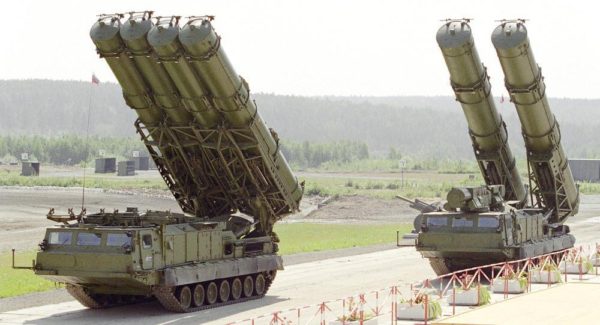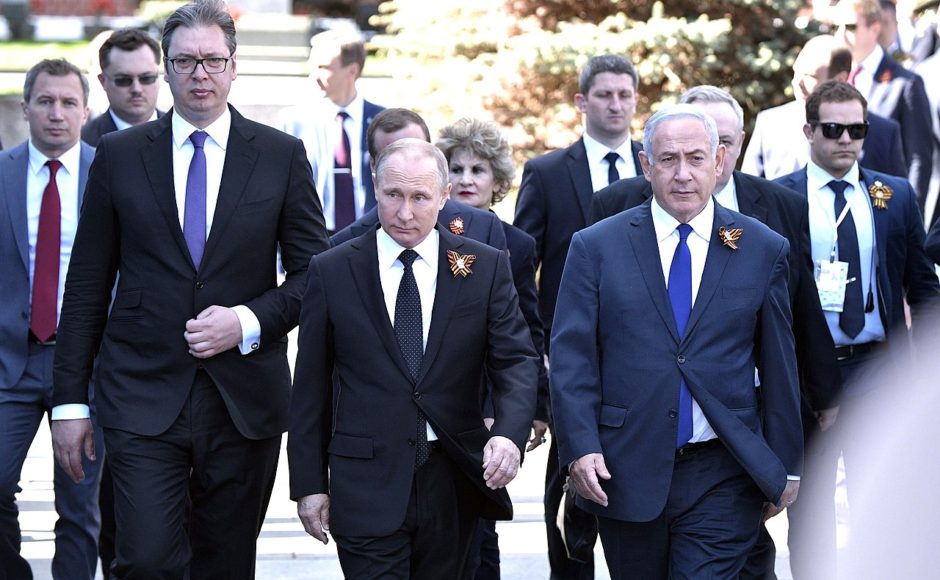Israel’s bilateral relationship with Russia today is generally cordial. Certainly, it is far better than it was during the Cold War, when Russia unilaterally severed diplomatic relations with Israel twice, first in 1953 and then during the 1967 Six Day War.
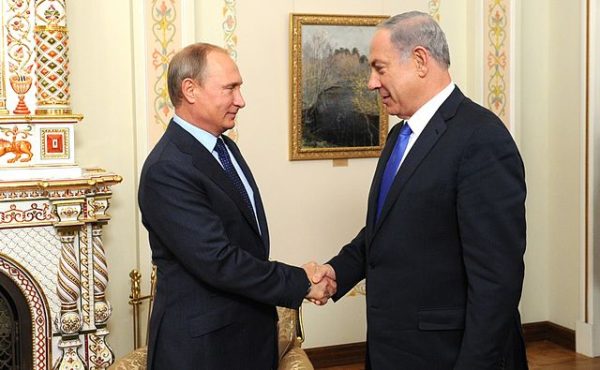
Nonetheless, given Russia’s close ties with Israel’s arch enemies, Syria and Iran, Israel must be careful not to rile the Russian bear. Keeping this imperative in mind, Israeli Prime Minister Benjamin Netanyahu has flown to Moscow 11 times in the past three years to confer with Russian President Vladimir Putin over Syria. Netanyahu and Putin met most recently at the end of last February.
Probably the single most important issue they have discussed turns on Iran’s ongoing efforts to establish military bases in Syria, its chief Arab ally since the early 1980s. Iran, which has repeatedly called for Israel’s destruction, has been entrenching itself militarily in Syria since the outbreak of the Syrian civil war in 2011. Iran and its allies, Hezbollah and an assortment of Shi’a militias, have fought alongside the Syrian armed forces to recapture territory lost by President Bashar al-Assad’s regime since the early phase of the civil war.
Russia, being committed to Assad’s survival and Syria’s territorial integrity, dispatched military advisors and a squadron of aircraft to Syria in September 2016 to ensure that these objectives were met. Since then, Syria has succeeded in retaking nearly all of the territories captured by the rebels.
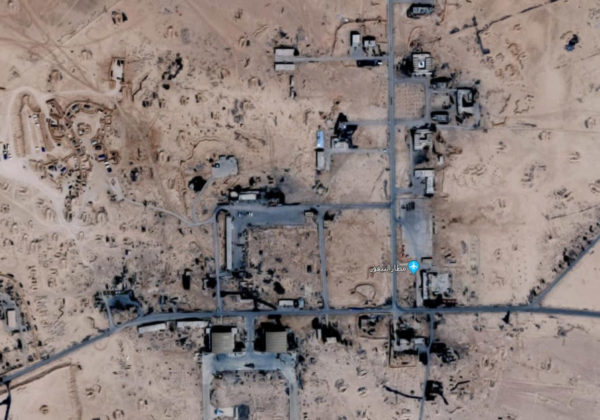
Although Israel has more or less managed to keep out of Syria’s civil war, the Israeli Air Force has launched more than 200 raids against Iranian bases and installations in Syria. Israeli jets have also bombed Syrian anti-aircraft batteries and Hezbollah weapon convoys en route from Syria to Lebanon. Israel has usually not taken credit for these attacks.
For the most part, Iran has absorbed Israel’s blows without a public reaction, but in 2018 Iran sent an armed drone into the Galilee that Israel promptly shot down. And in another incident some months later, Iran fired a barrage of rockets into the Israeli side of the Golan Heights, prompting Israel to launch massive air raids against Iranian sites and Syrian military sites.
Russia, having signed a deconfliction agreement with Israel in 2016, has tolerated Israel’s bombing campaign in Syria on the broad understanding that Russian personnel, airplanes and bases will not be hit. Last September, after Syria accidentally downed a Russian reconnaissance plane during an Israeli raid in Syria, Russia blamed Israel for the mishap, causing a chill in their relations and Russia’s decision to supply the Syrians with the S-300 air defence system, which became operational recently.
Although Russia is on good terms with Iran and has worked with the Iranians to defend Assad’s regime, the Russians are not really prepared to protect Iranian interests in Syria, much to Tehran’s chagrin.
Moscow, however, has periodically sharply criticized Israel’s air raids.
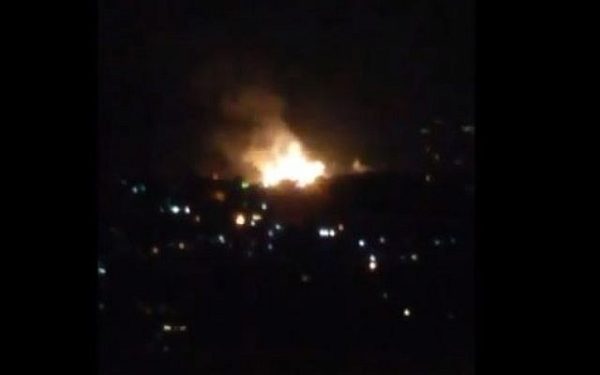
On July 1, following a series of major Israeli strikes targeting Iranian and Iranian-aligned forces near Damascus and Homs, Russian Foreign Ministry spokesperson Maria Zakharova accused Israel of violating Syria’s sovereignty and destabilizing the Middle East.
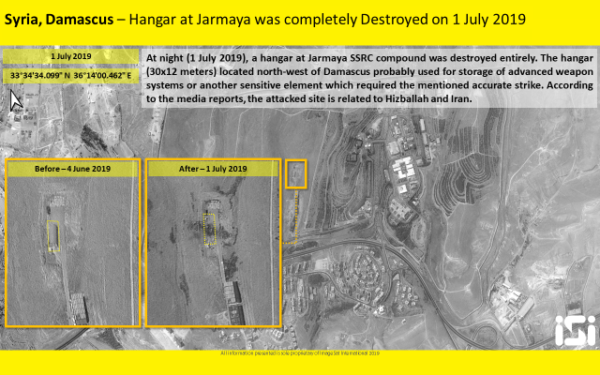
In response to Russia’s statement, Yossi Cohen, the head of the Mossad, said that while Israel was not interested in igniting a conflict with Syria, “we can’t agree to Syria becoming a staging ground for Iranian forces or forces operated by it against us.” Nor could Israel allow Syria to become “a logistic base for transferring weapons to Hezbollah and Lebanon.”
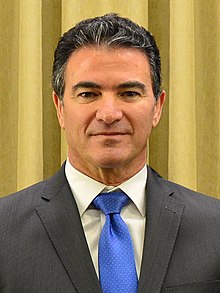
Last February, following his latest meeting with Putin, Netanyahu conveyed the same point. “The greatest threat to stability and security in the region comes from Iran and its proxies,” he declared. “We are determined to continue our aggressive activity against Iran … and against its attempts to establish itself militarily in Syria.”
The Russians disagree with Israel’s policy.
Late last month, Nikolay Patrushev, the Russian national security advisor, dismissed the view, espoused by Israel and the United States, that Iran represents “the main threat to regional security.” He also said that Israeli air strikes aimed at Iranian and pro-Iranian positions in Syria are “undesirable.”
Last winter, prior to the Netanyahu-Putin meeting, two Russian deputy foreign ministers, Sergei Ryabkov and Sergey Vershinin, issued a similar critique of Israel.
“For us, the security of Israel is of paramount importance,” said Ryabkov, who went on to say that Israeli air strikes in Syria are “unlawful” and “illegitimate.” Vershinin said that “such arbitrary attacks on sovereign Syrian territory should be stopped and excluded” because they “destabilize the situation even more.”
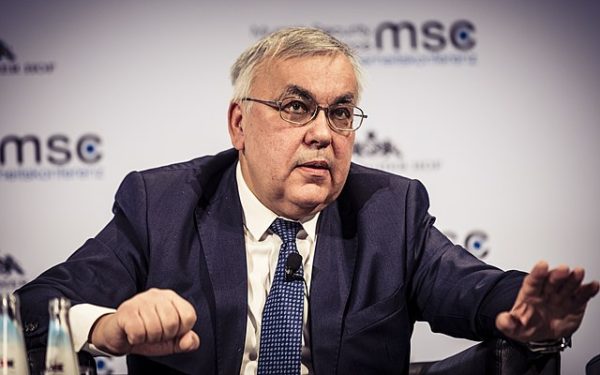
Despite Russia’s criticism, it can be assumed that Israel will continue to strike Iranian bases in Syria.
If the Syrians actively deploy the S-300 system against Israeli aircraft, Israel may well try to destroy them, adding another complicating layer to the tense Syrian equation.
